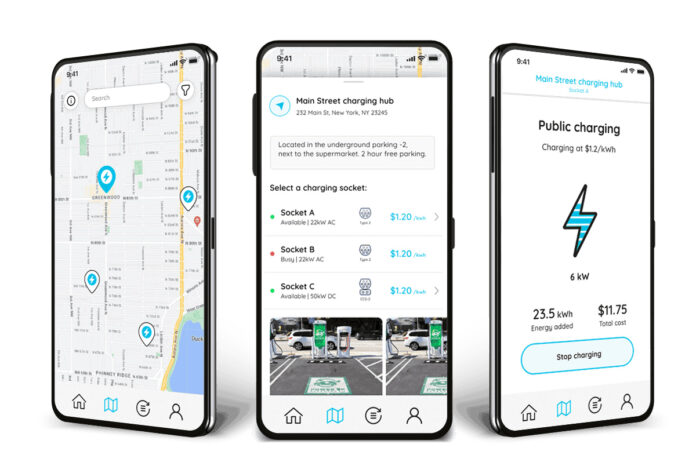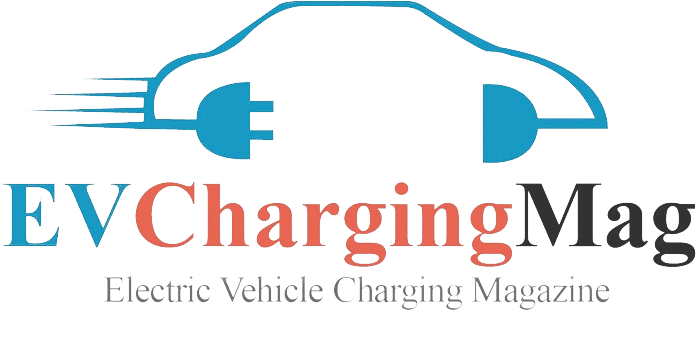The EV revolution is rapidly transforming transportation, and with it comes the critical need for efficient and cost-effective charging solutions, especially for commercial fleets. Recognizing this pivotal shift, SolarEdge Technologies, a global leader in smart energy, acquired AI-driven energy management startup Wevo Energy in 2024. This acquisition has led to the launch of a next-generation, solar-powered EV charging platform for commercial fleets that optimizes energy consumption and reduces operational costs.
Beta customers have already reported savings of up to 70%. The system autonomously selects the most cost-effective energy source in real time—whether it be solar, battery storage, or grid power—and dynamically adapts to fleet schedules and infrastructure constraints. This enables businesses to scale their EV fleets without incurring hefty infrastructure upgrades. Key features of this groundbreaking platform include real-time, AI-driven energy source optimization, tiered charging logic that prioritizes essential vehicles, dynamic load balancing that allows up to 20x charger scalability on existing infrastructure, and support for EV chargers via ‘Olivia’, a newly released AI phone support agent.
An In-Depth Look at the Technology
To gain deeper insights into this groundbreaking technology, EV Charging Magazine engaged in a Q&A interview with Teddy Flatau, Co-founder & CEO of Wevo Energy. Mr. Flatau shed light on the platform’s key features and its potential to revolutionize EV fleet management.
EV Charging Magazine: The announcement mentions up to 70% savings for beta customers. Could you share a specific, anonymized example illustrating how a business has achieved significant cost reductions using your AI-powered platform? What were some of the key factors that led to these savings in their particular case?
Teddy Flatau: One of our customers in Germany has seen major potential for cost savings simply by shifting the timing of EV charging.
In a typical scenario—for a small commercial site with a 50 kWp partial feed-in solar system—if 100 kWh of EV charging happens early in the morning (when solar generation is low), all that energy needs to be purchased from the grid at €0.176/kWh, costing around €17.60 per day.
But if charging is shifted to midday, when solar panels are producing excess energy, the business can use self-generated electricity instead. That means giving up the feed-in tariff (€0.0568/kWh), but the opportunity cost is only €5.68—far less than buying from the grid. The result? A ~67% reduction in daily charging costs.
It’s a simple shift with serious impact—highlighting just how valuable solar-aware charging can be.
EV Charging Magazine: Dynamic load balancing is presented as a key feature for scalability. In simple terms, how does this technology allow a business to significantly increase the number of EV chargers they can use without needing major upgrades to their existing electrical infrastructure?
Teddy Flatau: Most sites don’t have an energy problem—they have a power problem. While there may be sufficient energy over the course of a day, the instantaneous power draw from simultaneous charging can overwhelm the infrastructure. Wevo’s dynamic load balancing addresses this by intelligently allocating available power across multiple chargers.
Since most EV drivers spend several hours at their workplace—often nine or more—immediate full-speed charging is unnecessary. The AI system staggers and optimizes charging sessions to ensure everyone gets the energy they need without triggering infrastructure upgrades, enabling up to 20x more chargers to operate on existing electrical setups.
EV Charging Magazine: For businesses that have invested in solar energy, how does your platform intelligently integrate this renewable energy source into their EV charging operations to maximize cost savings and sustainability?
Teddy Flatau: Wevo’s platform integrates directly with solar inverters and energy meters to create a unified energy management system that prioritizes solar charging. The AI pauses vehicle charging during low solar production and resumes when solar output peaks, ensuring maximum use of on-site renewable energy. Businesses can also configure the system to prioritize vehicles with urgent charging needs, such as on-call service vehicles, ensuring they receive immediate access to energy. Additionally, individual drivers can override default scheduling by “boosting” their charge through the mobile app, enabling flexible and user-driven energy access while maintaining overall optimization.
EV Charging Magazine: The platform is said to autonomously select the most cost-effective energy source in real-time. Could you briefly walk us through how the AI makes these decisions, considering factors like energy prices, solar availability, and battery state?
Teddy Flatau: The system continuously monitors a site’s solar generation, grid usage, building consumption, and utility tariffs to determine the lowest-cost energy mix in real time. It dynamically shifts charging sessions to take advantage of cheap solar or off-peak grid rates, while deferring or pausing sessions when energy is expensive or demand is high. This real-time optimization ensures that vehicles are charged cost-effectively and sustainably without compromising availability.
EV Charging Magazine: Beyond cost savings and scalability, what other tangible benefits can businesses expect to see in their operations by implementing this AI-powered EV charging platform?
Teddy Flatau: Beyond reducing costs and avoiding infrastructure upgrades, businesses benefit from operational flexibility, simplified billing, and robust energy insights. Wevo’s system supports multi-user and fleet-wide management, enables hardware flexibility through open OCPP standards, and improves site efficiency through intelligent prioritization and smart scheduling. Whether managing a mixed-use site, a fleet depot, or a workplace, companies gain full control and visibility over their charging operations.
EV Charging Magazine: Could you tell us more about ‘Olivia‘, the AI phone support agent? What kind of assistance can users expect from this feature, and how does it enhance the overall user experience?
Teddy Flatau: Olivia is Wevo’s AI-powered voice agent designed to assist EV drivers via phone with real-time support. It provides help with charger access, payment issues, session troubleshooting, and general queries—offering a seamless alternative to mobile apps or human call centres. By responding in natural language and handling common issues autonomously, Olivia improves user satisfaction, shortens resolution time, and reduces support costs while maintaining 24/7 availability.
Key Takeaways
The collaboration between SolarEdge and Wevo Energy is delivering a significant advancement in EV fleet charging technology. This next-generation platform leverages AI to optimize energy usage, seamlessly integrate renewable sources like solar, and intelligently manage charging infrastructure. By addressing key challenges such as high operational costs and infrastructure limitations, this solution empowers businesses to transition to electric fleets more efficiently and sustainably. The platform’s ability to deliver substantial cost savings, combined with its scalability and the convenience of the ‘Olivia’ AI support agent, positions it as a transformative tool for the commercial EV charging market.


